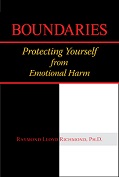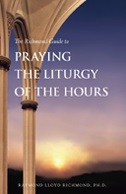|
|
|

I have Aspergerís/Alexithymia
(I discovered this latter word on your website) and my husband blames this condition for his
mental health breakdown in 2016. He says it/they caused him (back then) and continue
daily to cause him soft traumas, or Cassandra Syndrome as itís called on a website he found
regarding being married to an Aspergerís person. It makes statements such as: ďWhen your
life-partner has alexithymia, you can experience a profound loneliness. Empathy is the bedrock
of a happy marriage This lack of intimacy and empathy may lead to low marital satisfaction.Ē
Itís all a bit final and dispiriting. My husband says his sleep it fitful
and troubled and he often talks as if he wished he had never married me.
I love my husband but have to admit that the Aspergerís/Alexithymia (which is
it?) makes it difficult to discern his meaning / emotional cues. Iíve grown in self awareness
over time especially since we converted from Evangelicalism to Catholicism in 2006. Catholic
theology has helped me enormously to face my fears and my faults with less hiding; your website
even more so.
However, I donít know what to do about my Aspergerís/Alexithymia (I self-diagnosed
3 months before my husbandís breakdown). Is it a symptom of childhood psychological defenses? Is
it a personality disorder? Is it an insurmountable, fixed disability/deficiency. I think my husband
wants to leave me as he says his mental health is deteriorating again and it fills him with terror
to have to face another breakdown (panic attacks) again. He wrote in his recent email to me at work:
ďthere is a dynamic related to your particular modus-operandi and it has a distinct disquieting affect
as detailed in a number of links I have sent.... It really doesnít matter to me whether you accept
this or not as I am the person suffering it and I am the one who ends up having to bear some very
uncomfortable disquiet... this whole thing can lead me to some very difficult places and
thinking.Ē
 |
 etís begin with definitions of the
terms. etís begin with definitions of the
terms.
Alexithymia
refers to a difficulty in understanding and processing oneís own
emotions. It can have a variety of causes, including being an
only child, experiencing family emotional conflicts in childhood, witnessing
family violence
in childhood, being traumatized by bullying or
other emotional injuries in childhood, and brain injuries as a child or as an
adult.
Aspergerís Syndrome
refers to a developmental disorder similar to, but less intense than, autism and that is
characterized by a deficit of emotional awareness and an awkwardness in communicating with
and interacting with others; being a developmental disorder, it begins in infancy or
childhood and continues into adulthood. The causes are unclear, but it can derive from
pre-natal experiences (such as being hated or cursed by a parent; threatened abortion;
maternal emotional disturbances; maternal drug use; etc.) and traumatic infantile experiences
(such as emotional deprivation by a mother; family tension or violence;
abuse or neglect;
etc.).
The Bedrock
Itís true that the bedrock of any
relationship is
empathy.
A sacramental marriage, however, requires even more than empathy because it has multiple
purposes: the spouses must assist each other to grow in faith, to
overcome deficiencies in development and experience, to fight
temptations, to renounce evil, and to
raise children to love and serve God. With all of these purposes and
holy obligations, a sacramental marriage is far more than just a ďrelationship,Ē and so
empathy alone is insufficient for marital success.
|
Put on then, as Godís
chosen ones, holy and beloved, heartfelt compassion,
kindness, humility,
gentleness,
and patience: bearing with one another and
forgiving one another if one has a grievance against another; for as the Lord has forgiven
you, so must you also do. |
|
|
—Colossians 3:12–13 |
|
Consequently, in regard to your husbandís
ďbreakdown,Ē he is wrong to blame you for the matter. His
breakdown is a matter of his own personal psychology, with roots in his own
childhood emotional wounds. By blaming you for
his problems, he has failed in his Christian obligation to bear with you, to
forgive you, and to assist you in overcoming your emotional
deficiencies. By blaming you for his problems, he has failed to take personal
responsibility for his own thoughts and actions.
Your husbandís failures as a Christian and as a husband not only defile empathy but
also amount to the grave sin of
hatred.
|
Essentially, your husband
has chosen, of his own free will, to have
a breakdown. That may sound odd, but the hard truth is that the sin of his hatred has
excluded him from the life of blessedness, and, in that exclusion, he will find only
psychological dysfunction and meaningless suffering. |
|
Trouble?
Hence, if your marriage is troubled, it is not
because of your fault alone, since both you and your husband have deficiencies in love. But
you donít hate your husband; your marriage is in danger because of the hate in your husbandís
heart.
Your husband needs to face his own emotional pain,
which derives from his own emotional wounds that have gone untreated
and unhealed. His blaming you for his problems is like a curse he has placed on himself that
can easily lead to his own doom.
So what can you do about all this? Well, if you
seek you own healing from your developmental deficiencies (e.g.,
through professional guidance) you can now acquire
the emotional skills that most persons acquire in childhood naturally.
Furthermore, in all of this, pray that your husband receive the grace of enlightenment and
conversion; forgive him for his failures, even if he refuses to forgive you for your
deficiencies, and pray constantly for him.


Healing
|
Though
Demons
Gloat
|
Anger
&
Forgiveness
|
Falling
Families,
Fallen Children
|
Disasters
and
trauma
|
Psychology
from the
Heart
|
 |
 |
 |
 |
 |
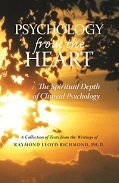 |
Psychological Healing
in the Catholic Mystic tradition |
True Christian
Identity
In Confronting
Evil |
How to Turn the
Emotional Wounds
of Daily Life Into
Psychological Growth. |
The Psychological
and
Spiritual Remedy
For Our Cultural
Disintegration |
The Struggle For
Psychological
and Spiritual
Growth |
Collected Texts
About the Spiritual Depth of
Clinical Psychology |
More information |
More information |
More information |
More information |
More information |
More information |
Desire
and
Distraction
|
Fear
|
Stopping
Smoking
|
Borderline
Personality
Disorder
|
Catholic
Compassion
|
 |
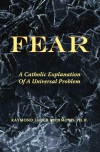 |
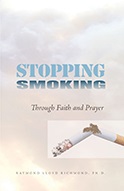 |
 |
 |
A Catholic Perspective
On Behavioral Change
and Its Subversion |
A Catholic Explanation
Of a Universal
Problem |
Through
Faith
and
Prayer |
Healing
the
Rage |
When They Tell You
That the Moral Teachings
of the Catholic Church
Are Wrong |
More information |
More information |
More information |
More information |
More information |
|











